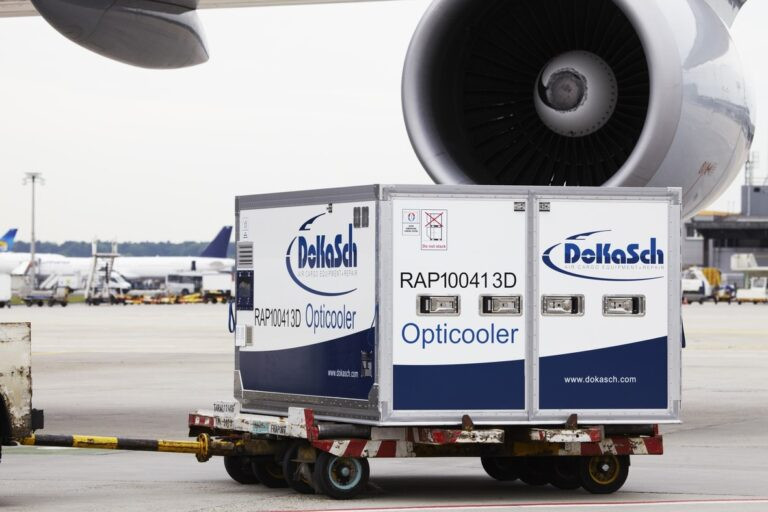For nearly two years, the COVID-19 pandemic has been severely impacting global industry, trade and supply chains. Uncertainties or disruptions in ground-based supply chains continue to drive up demand for air freight to this day, making capacity less available. Moreover, intercontinental flights are still not at pre-pandemic levels. The resulting severe capacity shortage required all parties along the supply chains to quickly adapt to an unprecedented situation.
Pandemic affects temperature-controlled supply chains
Even in normal operations, the temperature-controlled logistics of pharmaceuticals is a complex and demanding task. Many Life-saving medicines and active ingredients must be transported at precise temperatures to remain undamaged and maintain full efficacy for patients. There is no room for inaccuracies in this process. But due to the pandemic in many cases the carefully planned transport routes were no longer available and could not simply be rescheduled. This is because not only packaging solutions have to be qualified for cold chain transports, but also the exact route, means of transport and transport duration are clearly defined. Normally, pharmaceutical shippers can use alternate routes that are also fully qualified. However, due to the unprecedented situation, even these were no longer available in many cases.
Active packaging solutions offer maximum reliability
As a result, transports often took longer than usual because they got stuck or the available routes were longer. Since passive packaging solutions can only maintain the desired temperature range for a given limited time, demand increased for reliable active packaging solutions like the DoKaSch-Opticooler.
“Electrically powered and fully air-conditioned the Opticooler maintains the desired temperature level, e.g. between 2 and 8 degrees Celsius, at all times. In this way, it ensures with maximum reliability that the cargo remains safe and undamaged in all climate zones,” explains Andreas Seitz, managing director of DoKaSch Temperature Solutions, adding, “Furthermore, the Opticooler can easily be used as an interim storage facility if the necessary cool infrastructure is not available. Active packaging solutions thus provide a safety buffer for delays, flight cancellations and changed transport routes and are thus an important contribution to a reliable cold chain.”
In addition to the change in routes, the increased use of charter flights also pushed up demand for the Opticooler. After all, while a regular scheduled passenger flight usually holds up to six of DoKaSch’s Opticoolers, a charter flight can load 30 or even more. Nevertheless, cargo flight capacity is still limited and therefore expensive. Compared to passive packaging solutions, however, the RAP Opticooler offers space for 5 Euro pallets. Therefore, it also makes more efficient and thus more economical use of the currently limited and expensive freight space.
“Due to the changeover of aircraft, we had to provide a much higher number of containers at once. Our strategy is focused on 100% container availability, and that is what pharmaceutical shippers rely on. Accordingly, we always keep a reserve, so we managed to cover the unforeseen demand. Our forward-looking strategy has paid off,” says Andreas Seitz.
More flexibility thanks to worldwide presence
“In order to serve demand even better and more flexibly in the future, DoKaSch is expanding its global presence and will soon open several depots for its Opticoolers at important export locations for vaccines and pharmaceuticals. Furthermore, the company is continuously expanding its network through agreements with major airlines. The improved, worldwide availability of the Opticooler enables DoKaSch to respond more quickly to requests and avoids empty container positioning flights. This not only has a positive impact on customers’ costs, but also saves CO2 emissions. “Flexibility and short response times are key, even in uncertain times, and we place great emphasis on this in our team and processes,” adds Seitz.




